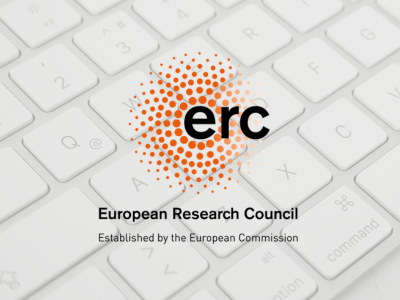23 researchers from 14 UNICA universities granted with ERC Advanced Grants
03 April 2023 | From our Members - Funding

Story highlights
– Projects in Social Sciences and Humanities lead the funded projects in UNICA universities
– ERC Advanced Grants support established, leading researchers
UNICA is proud to share that the European Research Council (ERC) has awarded 23 researchers in 14 member universities with Advanced grants from the 2022 call. The funding, which is part of the EU’s Horizon Europe programme, is awarded to established, leading researchers with a proven track-record of significant research achievements over the past decade. The funding will enable these researchers to explore their most innovative and ambitious ideas. In total, the Advanced Grant scheme awarded 218 researchers across 20 countries in Europe, accounting for a total of €544 million to support cutting-edge research in a wide range of fields.
Out of the UNICA universities that were funded, the University of Copenhagen (Denmark), the University of Helsinki (Finland), and Stockholm University (Sweden) are the ones with the most number of funded projects, with 3 each. In terms of research domains, the area of Social Sciences and Humanities leads with 13 projects. It is then followed by Life Sciences with six projects. Finally, there are five funded projects in the area of Physical Sciences and Engineering.
Here is the complete list:
| Country | University | Researcher | Project | Area |
| Austria | University of Vienna | Manuela Ciotti | The anthropology of the future: An art world perspective | Social sciences and Humanities |
| Germany | Free University of Berlin | Jens Eisert | Delineating the boundary between the computational power of quantum and classical devices | Physical Sciences and Engineering |
| Germany | Free University of Berlin | Stephan Sigrist | The synaptic active zone as a signaling hub for sleep homeostasis and resilience | Life Sciences |
| Germany | Humboldt University of Berlin | Jan Plefka | High-Precision Gravitational Wave Physics from a Worldline Quantum Field Theory | Physical Sciences and Engineering |
| Germany | Humboldt University of Berlin | Roland Strausz | Data Privacy in Digital Markets | Social sciences and Humanities |
| Denmark | University of Copenhagen | Joshua Mark Brickman | Signaling decoded in ENhanCEr states – a molecular basis for plasticity in development and differentiation | Life Sciences |
| Denmark | University of Copenhagen | Klaus Hoeyer | Data Spaces: Making Sense of Health in an Age of Cross-Border Data Infrastructures | Social sciences and Humanities |
| Denmark | University of Copenhagen | Guillermo Montoya | Repurposing of CAST Systems as Next-Generation Tools for Genome Engineering of Mammalian Cells | Life Sciences |
| Spain | University Complutense Madrid | Carmen Julia Gutierrez | Giving Voice to Hispanic Chant through a Phylogenetic Study of Medieval Plainchant | Social sciences and Humanities |
| Finland | University of Helsinki | Anna-Liisa Laine | Coevolutionary Consequences of Biodiversity Change | Life Sciences |
| Finland | University of Helsinki | Matti Juhani Lassas | Geometric Methods in Inverse Problems for Partial Differential Equations | Physical Sciences and Engineering |
| Finland | University of Helsinki | Virpi Timonen | Material and environmental legacies in the 21st century: a theory of legacy-making between generations | Social sciences and Humanities |
| France | Chimie Paris Tech – PSL | Carlo Adamo | In-silico Models for the Design of Mechanochromic Functionalized Polymers | Physical Sciences and Engineering |
| France | EPHE – PSL | Charles Ramble | Reconstructing the Pagan Religion of Tibet | Social sciences and Humanities |
| Ireland | University College Dublin | Kenneth Dawson | Functional Nanoscale Therapeutics | Life Sciences |
| Italy | University of Rome “Tor Vergara” | Emilio Calvano | Artificial Intelligence and Competition | Social sciences and Humanities |
| The Netherlands | University of Amsterdam | Jeroen De Kloet | Resilient Cultures – Music, Art, and Cinema in Mainland China and Hong Kong | Social sciences and Humanities |
| Norway | University of Oslo | Regine Hock | Past and Future High-resolution Global 20Glacier Mass Changes | Physical Sciences and Engineering |
| Portugal | NOVA University of Lisbon | Mariana Pinho | Finding the missing links in the bacterial cell cycle | Life Sciences |
| Sweden | Stockholm University | Maja Schlueter | Building models of, with and for sustainability transformations | Social sciences and Humanities |
| Sweden | Stockholm University | Jakob Svensson | It’s (also) what you produce: Experimental Evidence on Creating Markets for Quality in Low-income Countries | Social sciences and Humanities |
| Sweden | Stockholm University | Jonas Tallberg | Democracy, Autocracy, and International Cooperation | Social sciences and Humanities |
| Slovenia | University of Ljubljana | Mirjam Mencej | The roles of the agency of the dead in the lives of individuals in contemporary society | Social sciences and Humanities |
About the ERC
The ERC, set up by the European Union in 2007, is the premier European funding organisation for excellent frontier research. It funds creative researchers of any nationality and age, to run projects based across Europe. The ERC offers four core grant schemes: Starting Grants, Consolidator Grants, Advanced Grants and Synergy Grants.
The overall ERC budget from 2021 to 2027 is more than €16 billion, as part of the Horizon Europe programme, under the responsibility of the European Commissioner for Innovation, Research, Culture, Education and Youth, Mariya Gabriel.
Learn more


 Co-funded by the European Union. Views and opinions expressed are however those of the authors only and do not necessarily reflect those of the European Union or the European Education and Culture Executive Agency (EACEA). Neither the European Union nor the granting authority can be held responsible for them.
Co-funded by the European Union. Views and opinions expressed are however those of the authors only and do not necessarily reflect those of the European Union or the European Education and Culture Executive Agency (EACEA). Neither the European Union nor the granting authority can be held responsible for them.